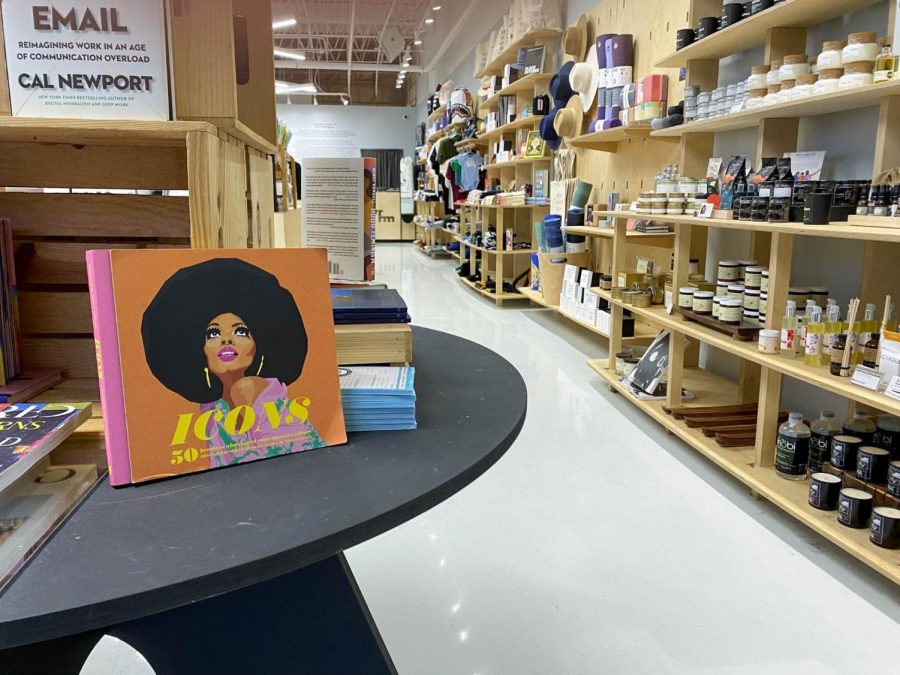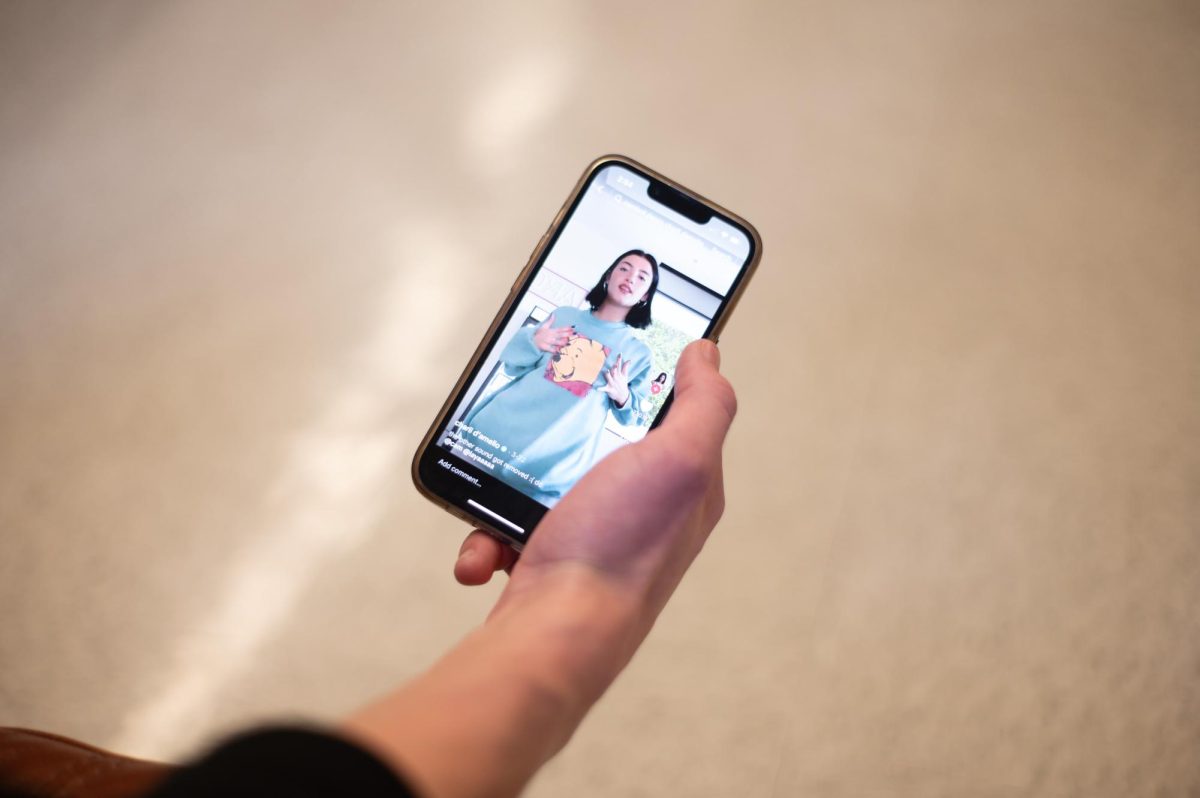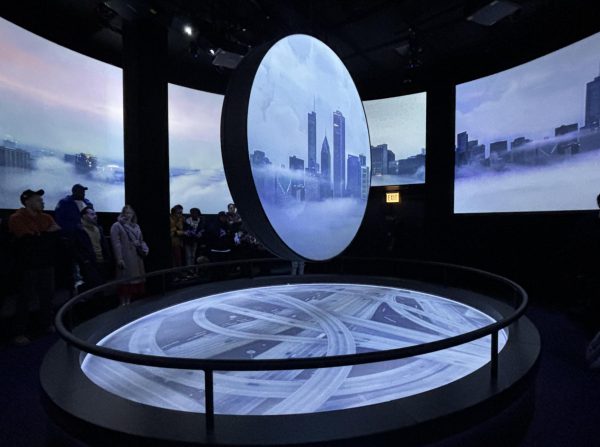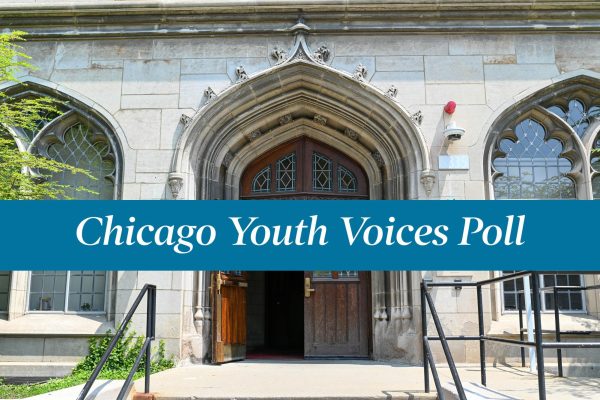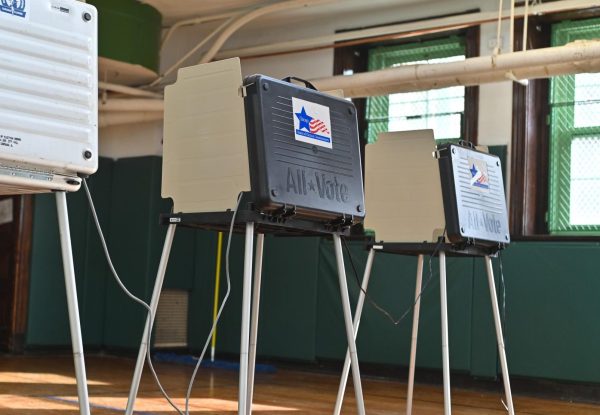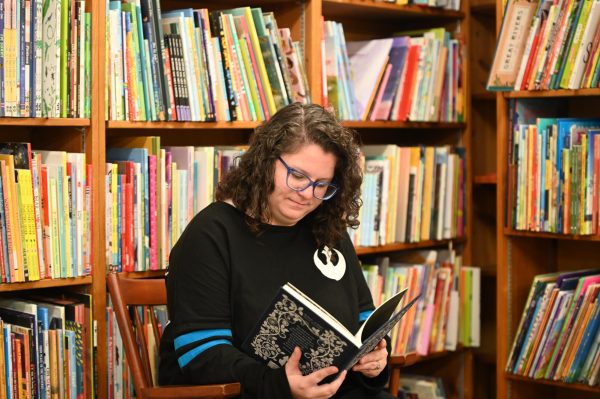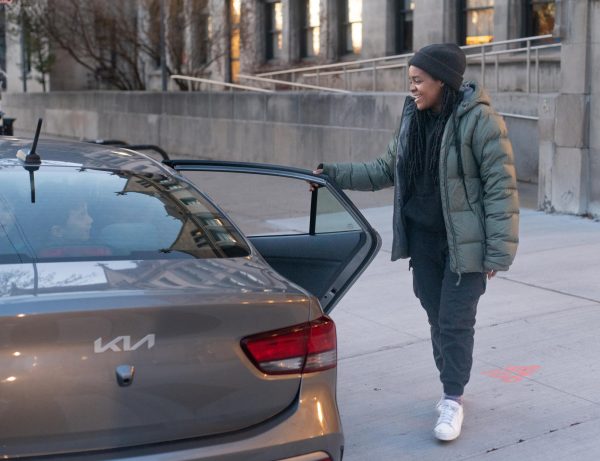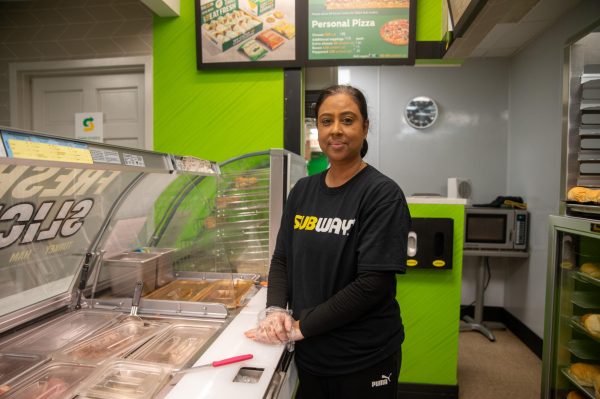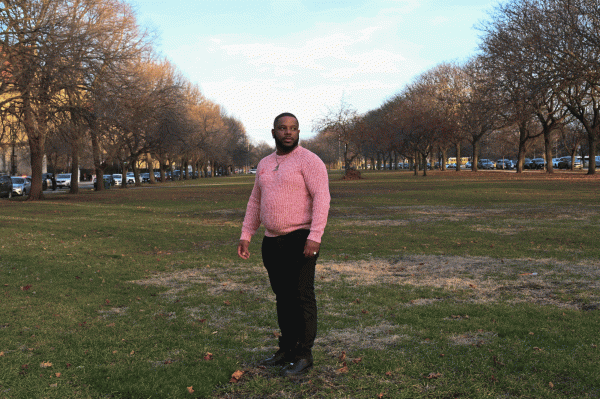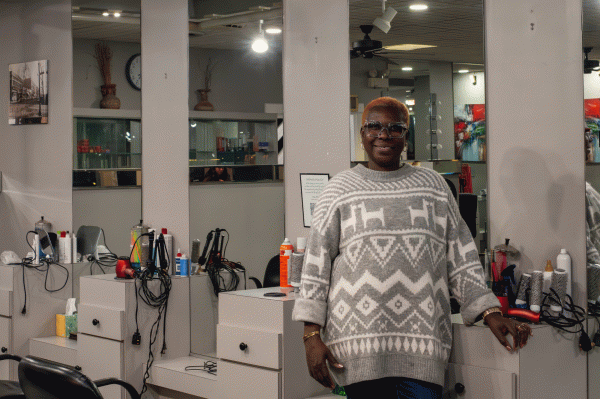Silverroom continues to uplift Black culture
The brand is a model and support system for other Black-owned businesses through the pandemic
ICONS. The Silverroom is a boutique located in Hyde Park that focuses on promoting Black culture. The store was filled with books and shirts with images of historically significant Black figures on them. “I think it’s important, … using the merchandise we sell as a way to showcase folks in the community from a historical context,” Eric Williams said.
May 20, 2021
Eric Williams was just focused on getting some money. He had the opportunity to go to business school for free and took it, despite his true desire to DJ. He asked which major made the most money, and when he found out it was finance, it was a no-brainer.
As he went to school he would sneak away to clubs to experience his passion. At the same time he would street peddle whatever type of clothes and jewelry he could get his hands on to make some money. After eight years of street peddling, he decided to settle down and open up shop in Wicker Park. That is how The Silverroom was born.
Over the past 14 years, The Silverroom has contributed greatly to the African American community, from the light it shines on Black culture through its merchandise, and the blueprint it serves as for other Black-owned businesses.
“You have a lot of Black folks who don’t see positive businesses in their community. They don’t have a lot of examples, so I think it’s just great for other Black folks to see positive venues,” Mr. Williams said.
The Silverroom, now located in Hyde Park, serves as a model for people in the African American community to believe that they can succeed too. The store is not just a model example, though. It provides real avenues by using the work of local designers, and through its most successful event, The Silverroom Block Party.
“It’s a day of celebration for a lot of people, I mean especially in communities that don’t have a lot of time and space to celebrate and commune,” he said. “Sometimes you just need some levity and you know just to celebrate your culture through music, through art, to get together with old friends. That’s really really important.”
The Silverroom Block Party gives artists exposure and creates a space for vendors and other businesses to make money. In the 2017 block party alone, 30,000 people attended the event, which generated an estimated $1.5 million economic impact.
Because of the significance of the event, there is great disappointment at the fact that it won’t be running for the second summer in a row due to the pandemic and its complications. Mr. Williams says that he is focused on continuing to succeed as a business, which continues to be something that the African American community can always look up to.
Despite the pandemic, Mr. Williams notices times where business is going particularly well because shoppers are actively trying to support when they are more aware, such as during Black History Month.
“People who understand the connection between Black business and spending their dollars and keeping us in business, you know, it’s very important,” he said.
Despite the support that Mr. Williams receives, some Black-owned businesses recognize the support simply as a trend. For example, after the death of George Floyd by Minneapolis police on May 25 of last year, Yelp reported a 7,043% increase in searches for Black-owned businesses between May 25 and July 10 when compared to the same time the year before. Since then, that number has largely died down. Despite this, Mr. Williams is optimistic that support for Black-owned businesses is not just a trend.
“I think it’s something that people understand, you can’t just do it for one month, it’s something that has to be done all year round. I think people understand that”
Through the ups and downs of The Silverroom, two things have remained constant: the business’ support of the African American community and Mr. Williams’ hustle.
“Thinking about the store, it’s impact on the community wasn’t something I was thinking about when I first opened,” Mr. Williams said. “I realized that having a space that I thought was just a retail space, it soon became much more. … You name it, we started to do it.”



